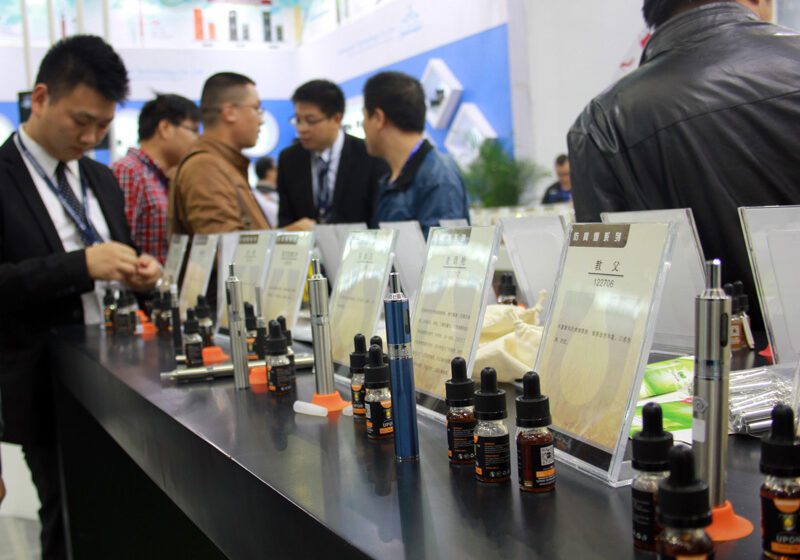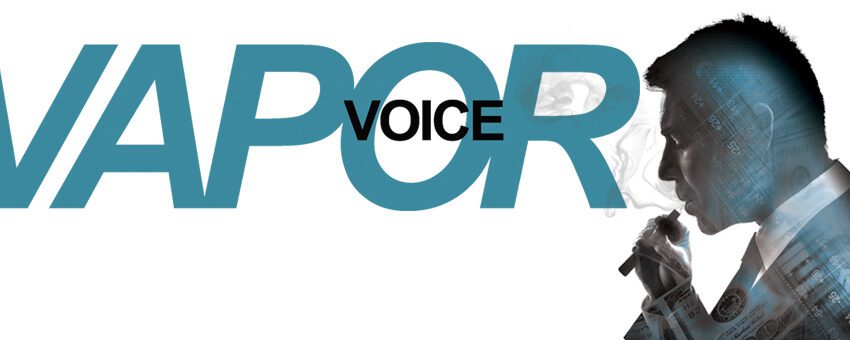Asian smokers are more enthusiastic about e-cigarettes than their governments.
Contributed
Unlike other consumer product manufacturers, tobacco companies have few, if any, avenues to communicate with their customers, and their customers have little or no access to the manufacturers. Tobacco companies have limited access to policymakers or the media and are therefore hamstrung when it comes to defending the rights of their customers, and, consequently, up until now, consumers have had no one speaking on their behalf.
Regional consumer advocacy group Factasia.org, based in Hong Kong, was established in 2014 as a voice for reason and to support adult Asian consumers’ rights to choose and use reasonably regulated tobacco and nicotine products. Anti-smoking efforts, as mandated by the Framework Convention on Tobacco Control, including smoking bans, high taxation, graphic health warnings and plain-packaging initiatives, have clearly failed to deliver the results intended. They have instead disadvantaged—even demonized—smokers and deprived them of their rights, while fueling a growing criminal illicit trade globally that currently supplies one in 10 cigarettes smoked on the planet.
The major focus on tobacco control initiatives throughout the Asia Pacific region is centered on e-cigarettes and other alternatives to conventional tobacco products, and it is in this critical segment that Factasia.org is currently concentrating much of its efforts.
To better understand just what adult Asian smokers think they know about e-cigarettes, Factasia.org commissioned Ipsos, one of the world’s most respected polling companies, to conduct a survey of consumers in six Asia Pacific countries. The results, which are being rolled out across the region in a series of media events, “clearly [show] that adult smokers see e-cigarettes as a positive alternative to smoking and want the choice to use them as a less harmful alternative to conventional cigarettes,” said Heneage Mitchell, co-founder of Factasia.org.
Factasia.org’s survey of Australia, Hong Kong, Malaysia, New Zealand, Singapore and Taiwan smokers found that 71 percent of adult smokers say e-cigarettes that contain nicotine—products that do not burn tobacco and therefore do not produce the potentially dangerous particulates found in cigarettes—are a “positive alternative” to conventional cigarettes.
Smokers hold similar views toward the concept of tobacco harm reduction, and 75 percent of respondents said that it would be wrong for a government “to prevent or delay legalizing less harmful alternatives to cigarettes for adult smokers.” An even higher percentage (82 percent), agreed that, “through tax and regulatory policies, the government should encourage adult smokers to switch to less harmful alternatives to cigarettes and ensure they are not used by youth.”
The Factasia.org study found that, while some 22 percent of smokers were still unaware of e-cigarettes, 46 percent across the region had tried them, and 8 percent now use them regularly. A clear majority (68 percent) said the main reason for using e-cigarettes was “as an alternative to conventional cigarettes.”
“There is obviously consumer demand throughout Asia for the right to choose,” Mitchell pointed out. “There is also a massive body of international scientific research that shows that using e-cigarettes can be consistent with wider public health objectives that benefit all of society. Rather than banning them, governments have a great opportunity to become a clear leader in progressive public health policy and in harm reduction in this vital sector.”
Today, e-cigarettes are regulated differently around the world. In Southeast Asia, the tendency has been to impose blanket bans rather than regulating them—an easier approach for governments to adopt but a crippling blow for regional harm-reduction initiatives and a resounding slap in the faces of consumers. For example, Hong Kong, which has already imposed partial bans, is now debating a total ban, as now exists in Indonesia. Singapore is the only country that has pre-emptively banned all emerging tobacco products, including e-cigarettes and other smokeless tobacco products. Malaysia, which has a thriving vape community and a growing manufacturing sector, is at a pivotal moment, with the government still sending out mixed messages as to whether to ban or regulate e-cigarettes. Macau has announced it will shortly make a decision on its stated intention to ban all vape products. Australian federal and state governments remain obdurate in their anti-vaping stance and rhetoric, disadvantaging citizens and denying them the right to choose e-cigarettes over heavily taxed but nonetheless legal conventional cigarettes.
All this despite a growing and compelling body of scientific evidence that clearly indicates vaping is a gateway away from smoking, a reality one would have thought was in line with government and health community efforts to curb smoking incidence. But clearly this message has not yet penetrated many government and health agencies, many of whom continue to deliver misleading, untruthful, discredited and inaccurate information to consumers to justify their continuing reluctance to embrace this new technology and regulate vaping sensibly and effectively.
“Currently, I can quite legally buy an e-cigarette and vape it in the airport in, say, the U.K., fly to Hong Kong, Singapore or Indonesia with the device, and risk arrest and imprisonment there for possession of a banned product,” said Mitchell. “Clearly this is a ridiculous situation. In an age where harmonized global trade and manufacturing standards are the norm, this is an anomaly that needs to be addressed. Added to which, millions of consumers have already chosen to use these products worldwide, and they deserve and are entitled to the same protection in terms of manufacturing processes and product safety that they enjoy with everything else they buy. Currently, there are essentially no standards in place for e-cigarette and e-liquid manufacturers to follow, governments to enforce, or consumers to understand.”
Since its formal launch in March 2015, Factasia.org has held numerous face-to-face meetings with policymakers and legislators. It has created quite a stir in the media throughout Southeast Asia, presenting the results of the survey, updating key decision-makers on the current research and science supporting the use of e-cigarettes, and reminding politicians that smokers and vapers are also citizens and voters who deserve a voice in the debate, leading to fair and effective regulatory frameworks as opposed to discriminatory and unjustifiable impositions on their rights.
“We will continue to battle on behalf of adult Asian consumers, to protect their right to choose, to encourage rational debate focusing on facts rather than hysteria, rhetoric and uninformed opinion, and we will continue to press for the introduction of sensible regulations that protect consumers and which are in harmony with regulations that are already in place or being developed in the U.S. and the EU,” said Mitchell.
Over the next few months, Factasia.org will organize, in cooperation with various domestic and regional vape groups and consumer organizations, seminars bringing together harm reduction and manufacturing experts with policymakers, health experts and legislators in Malaysia and Hong Kong in continuing efforts to help lawmakers and related agencies understand the facts and to help neutralize the effect of the many false and alarming statements that continue to be disseminated by anti-smoking and anti-vaping communities.
“This effort is important because only by recognizing facts and applying reason and debating the issues rationally can consumers—and manufacturers—hope to end up with sensible, effective regulatory frameworks that serve the best interests of all stakeholders and citizens,” Mitchell said.
Box
Methodology:
The survey polled legal-age smokers in Australia, Hong Kong, Malaysia, New Zealand, Singapore and Taiwan in May–June 2015 and was conducted by Ipsos. It was conducted across statistically relevant gender and age groups using online interviews. An additional telephone poll has just been completed in Macau, where the key figures correspond with those of the other six areas polled.






